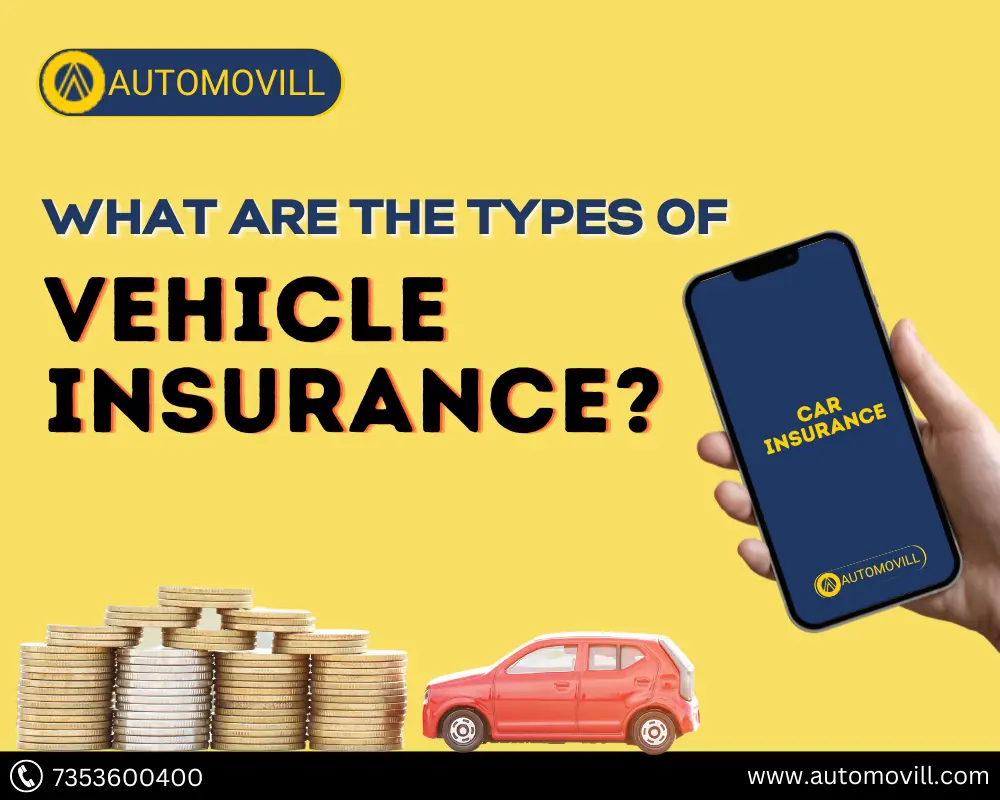
There are several types of vehicle insurance available to protect against different risks. The type of insurance you choose will depend on your needs and the type of vehicle you own.
1) Liability Insurance:
This is the most basic and required type of insurance in most states. It covers damages to other people and their property in an accident that you are at fault for. It typically includes bodily injury liability and property damage liability coverage.
2) Collision Insurance:
This type of insurance covers damages to your own vehicle in the event of an accident, regardless of who is at fault. It can help pay for repairs or replacement of your vehicle.
3) Comprehensive Insurance:
This type of insurance covers damages to your vehicle from non-collision events, such as theft, fire, or natural disasters. It can also cover damages from hitting an animal or other incidents not involving another vehicle.
4) Personal Injury Protection (PIP) Insurance:
This type of insurance covers medical expenses and lost wages for you and your passengers in the event of an accident, regardless of who is at fault. It can also cover funeral expenses and other damages. PIP is required in some states and optional in others.
5) Uninsured/underinsured Motorist Insurance:
This type of insurance covers damages to your vehicle and injuries to you and your passengers in the event of an accident caused by an uninsured or underinsured driver. It can help protect you if the other driver does not have sufficient insurance coverage.
In addition to these basic types of vehicle insurance, there are several additional options that can provide more comprehensive coverage.
6) Gap insurance:
This type of insurance covers the difference between the actual cash value of your vehicle and the amount you still owe on your car loan in the event of a total loss. It can help protect you if you have a new or leased vehicle and owe more on it than it is worth.
7) Rental Car Reimbursement:
This type of insurance covers the cost of a rental car while your vehicle is being repaired after an accident. It can provide peace of mind and help you avoid the inconvenience of being without a vehicle.
8) Towing and Labor:
This type of insurance covers the cost of towing your vehicle to a repair shop and the labor costs associated with getting it back on the road. It can be a valuable addition to your insurance policy if you frequently travel long distances or in remote areas.
When shopping for vehicle insurance, it is important to compare quotes from multiple providers to find the best coverage and prices for your needs. Be sure to carefully read the policy details and ask questions to understand what is and is not covered. It is also important to review your coverage periodically to ensure it still meets your needs.
In conclusion, there are several types of vehicle insurance available to protect against different risks. Liability insurance is the most basic and required type of insurance in most states, while collision and comprehensive insurance can provide additional protection for your own vehicle. Personal injury protection and uninsured/underinsured motorist insurance can help cover medical expenses and other damages. Additional options such as gap insurance, rental car reimbursement, and towing and labor can provide even more comprehensive coverage.
